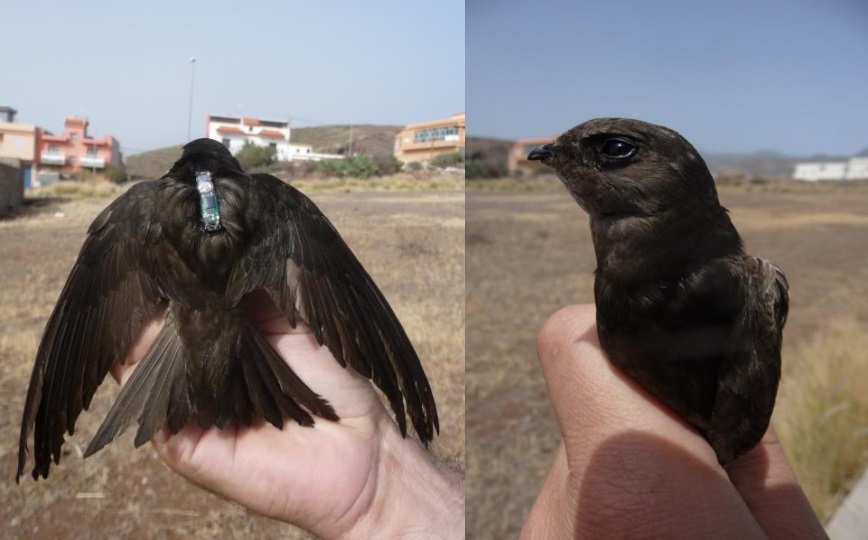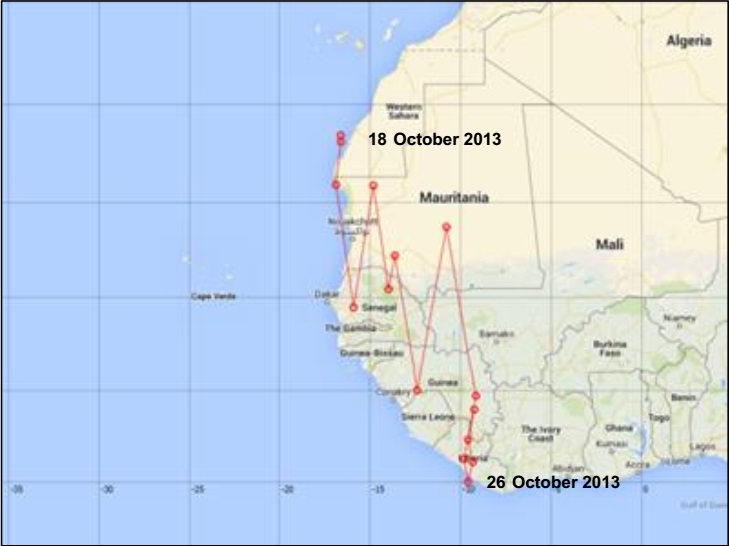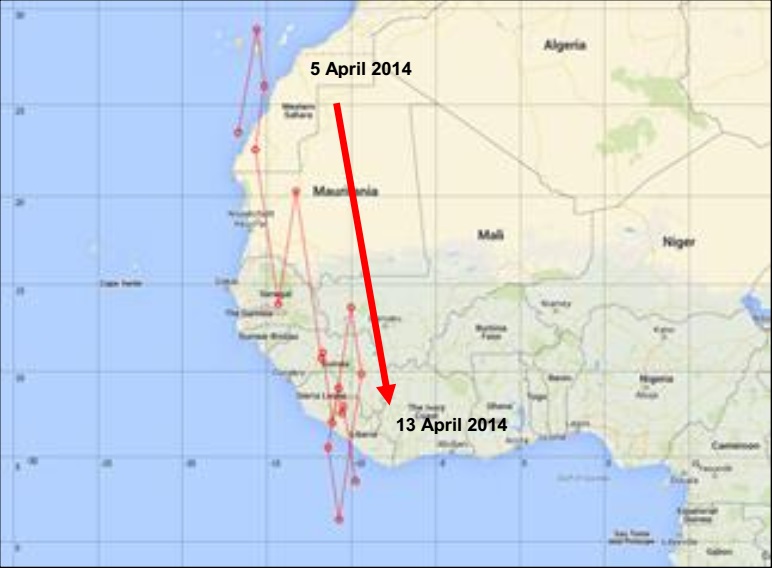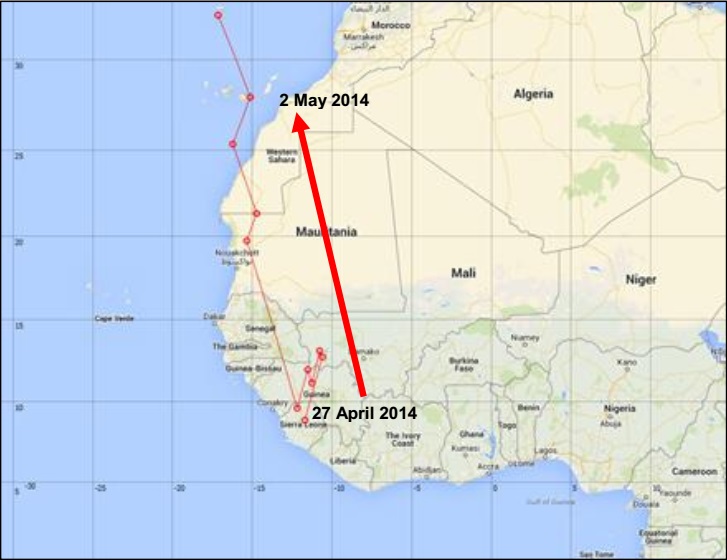A geolocator study revealed that Plain Swifts breeding in the Canary Islands winter in equatorial West Africa.
Plain Swift (Apus unicolor) breeds in the Canary Islands and Madeira in the north-east Atlantic. The populations of these two archipelagos are believed to be partly migratory, with an unknown proportion of the breeding population departing the islands during the winter months.
Before the geolocator study reported here, the wintering grounds for the species were unconfirmed although infrequent sightings in Morocco and Mauritania have suggested that coastal north-west Africa was the likely destination for migrating birds.
On the other hand, the status of the species in Morocco is still unclear, although it’s most likely breeding on the coastal cliffs between Sidi Ifni and Cap Tafelney. The breeding in these areas, especially north of Agadir, has been suspected at least since two decades, and a breeding colony was found during a recent study on the Northern Bald Ibis (Aourir et al. 2017).

Where the Canarian Plain Swifts overwinter?
To answer this question, Norton et al. (2018) fitted 16 Plain Swifts with geolocators at two breeding colonies in Tenerife, Canary Islands, in July 2013. Of these birds, two were subsequently recovered at one of the colonies the following May.
The data recovered from the two birds showed that at least some Canarian Plain Swifts undertake substantial migrations to spend the winter months in the Upper Guinean forests of equatorial West Africa. The birds’ migratory route included passage through several countries with no previous records of the species. These include Senegal, The Gambia, Guinea-Bissau, Guinea, Sierra Leone and Ivory Coast.

The birds departed their Canarian breeding colony in October and November respectively and travelled at least 2,600 kilometres to their wintering grounds located within eastern Liberia and adjacent areas. Both birds spent the entire wintering period until March/April 2014 in the Upper Guinean forests of Liberia, Guinea and Ivory Coast before returning to Tenerife via overland routes through western Africa.
Time spent outside the Canary Islands was 195 days and 187 days respectively. One bird made several abortive attempts at return migration, travelling from Liberia to the north-west African coast and back three times between 1 April 2014 and its final return to Tenerife on 2 May (one of the aborted attempts is shown in the map below).

Reference:
Norton, T., Atkinson, P., Hewson, C. & Eduardo Garcia-del-Rey, E. 2018. Geolocator study reveals that Canarian Plain Swifts Apus unicolor winter in equatorial West Africa. African Bird Club & Sociedad Ornitologica Canaria. 15 pp.
